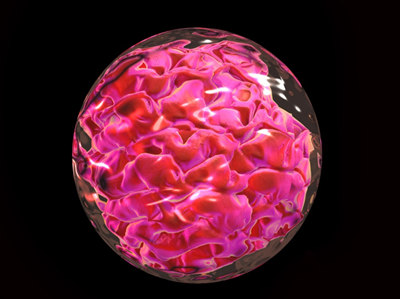AMSBIO: Qualified Human Feeder Cells for iPSC Reprogramming
AMSBIO has announced the launch of Newborn Human Foreskin Fibroblasts qualified for induced Pluripotent Stem Cell (iPSC)* reprogramming.
During cellular reprogramming the feeder layer can greatly affect the health of the cell culture and the success of the reprogramming. While a range of inactivated fibroblasts can be used as a support layer for pluripotent cell culture, not all will support mRNA reprogramming. Newborn Human Foreskin Fibroblasts (NuFF-RQ™) have been functionally validated to support the generation of induced pluripotent stem cell (iPSC) colonies providing an optimised feeder layer during mRNA reprogramming.

AMSBIO have added NuFF-RQ™ to their range of Mouse Embryonic Fibroblasts (MEFs) and Newborn Human Foreskin Fibroblasts (NuFFs) for stem cell culture experimentation. All AMSBIO feeder cells are meticulously derived and comprehensively tested on mouse and human ES stem cells to ensure robust and consistent performance with every lot. Fully qualified, ready-to-use feeder cells save you the time and trouble of dealing with an animal facility, dissections, cell expansion and lot-to-lot variation. Having undergone comprehensive safety tests including human pathogen and mycoplasma detection, AMSBIO’s feeder cells significantly reduce the threat of contamination in your iPSC reprogramming experiments.
NuFF-RQ™ qualified cells are available in conjunction with AMSBIO’s highly modified synthetic 5-capped mRNAs for safe, non-integrated human cell reprogramming. For further information on the new NuFF-RQ™ for iPSC reprogramming please visit http://www.amsbio.com/Stem-Cell-Reprogramming-Qualified-Feeder-Cells.aspx or contact AMSBIO now on +44-1235-828200 / +1-949-768-8365 or email info@amsbio.com.
Founded in 1987, AMS Biotechnology (AMSBIO) is today recognized as a leading international provider of unique & innovative products & custom services for life sciences research. The AMSBIO range includes over 23,000 polyclonal & monoclonal antibodies, peptides, recombinant proteins, extracellular matrix, molecular detection reagents, & tissue DNA, RNA, protein & microarray products. Key research areas include: apoptosis, cell invasion & migration, cell signalling, DNA damage, electrophoresis, glycobiology, posttranslational modification & stem cell biology.
* Induced pluripotent stem cells, commonly abbreviated as iPS cells or iPSCs are a type of pluripotent stem cell artificially derived from a non-pluripotent cells - typically an adult somatic cell - by inducing a "forced" expression of specific genes.
Worldwide HQ
AMS Biotechnology (AMSBIO)
Abingdon
- Ultra Smooth Hyperbolic Mirrors 2/9/2026
- Low Binding DNA Consumables for NGS and Molecular Biology 1/30/2026
- Creative BioMart Launches GenePowerTM Controlled Randomization to Support Precis 1/29/2026
- Biotech Fluidics: Instrument Optimized Vacuum Degassers. 1/28/2026
- High Speed Framing Cameras for Fusion Research 1/21/2026
- Tri-coded Storage Tube Optimized for Maximum Sample Recovery 1/16/2026
- Optimised UV Lenses for Forensic Investigation 1/16/2026
- Large Format Aerial Surveillance Lens 1/7/2026
- Breathing New Life into Older High-speed Cameras 1/7/2026
- New Handheld Decapper Boosts Speed and Consistency of 48-Format Tube Handling 1/6/2026


